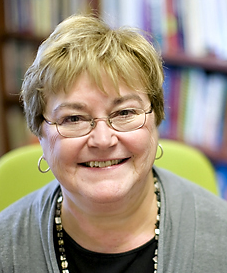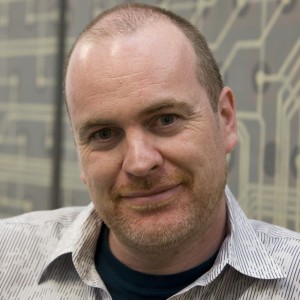
Judith Olson
Judith Olson is the Bren Professor of Information and Computer Sciences in the Informatics Department at the UC Irvine, with courtesy appointments in the School of Social Ecology and the Merage School of Business. She has researched teams whose members are not collocated for over 20 years, summaries of which are found in her most cited paper, “Distance Matters,” (Olson & Olson, 2000), and in her key theoretical contribution in the book Scientific Collaboration on the Internet (Olson, Zimerman, and Bos, Eds., 2008). Her current work focuses on ways to verify the theory’s components while at the same time helping new scientific collaborations succeed. She has been additionally studying the adoption of the new suite of collaboration tools in Google Apps, both the general adoption on campuses and a detailed look at how people collaborate inside documents over time. She is a Fellow of the Association for Computing Machinery and with her husband and colleague, Gary Olson, holds the Lifetime Achievement award from the Special Interest Group in Computer Human Interaction. In 2011, she was awarded the ACM-W Athena Lecture, the equivalent of the Woman of the Year in Computer Science.

Paul Dourish
Paul Dourish is a Professor of Informatics in the Donald Bren School of Information and Computer Sciences at UC Irvine, with courtesy appointments in Computer Science and Anthropology, and co-directs the Intel Science and Technology Center for Social Computing. His research focuses primarily on understanding information technology as a site of social and cultural production; his work combines topics in human-computer interaction, ubiquitous computing, and science and technology studies. He has published over 100 scholarly articles, and was elected to the CHI Academy in 2008 in recognition of his contributions to Human-Computer Interaction. He is the author of two books: “Where the Action Is: The Foundations of Embodied Interaction” (MIT Press, 2001), which explores how phenomenological accounts of action can provide an alternative to traditional cognitive analysis for understanding the embodied experience of interactive and computational systems; and, with Genevieve Bell, “Divining a Digital Future: Mess and Mythology in Ubiquitous Computing” (MIT Press, 2011), which examines the social and cultural aspects of the ubiquitous computing research program. Before coming to UCI, he was a Senior Member of Research Staff in the Computer Science Laboratory of Xerox PARC; he has also held research positions at Apple Computer and at Rank Xerox EuroPARC. He holds a Ph.D. in Computer Science from University College, London, and a B.Sc. (Hons) in Artificial Intelligence and Computer Science from the University of Edinburgh.
![[WUC4] 4th Workshop for Uniting the Californias](https://wuc4.star-uci.org/wp-content/uploads/2013/01/cropped-imageHeader_campusMaps1.jpg)